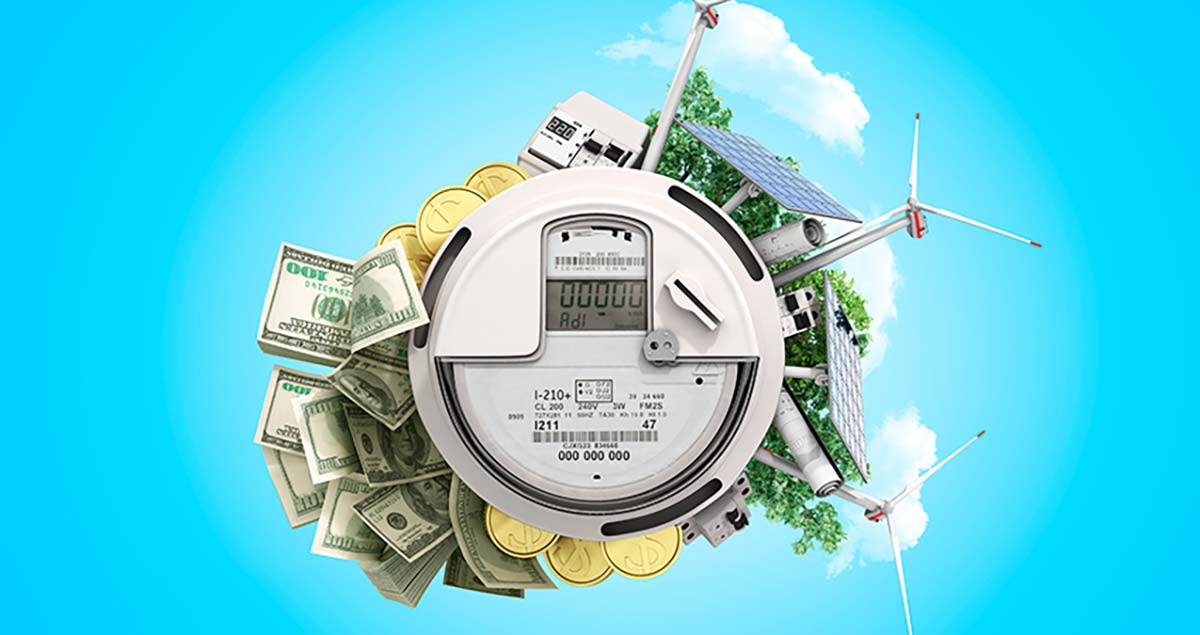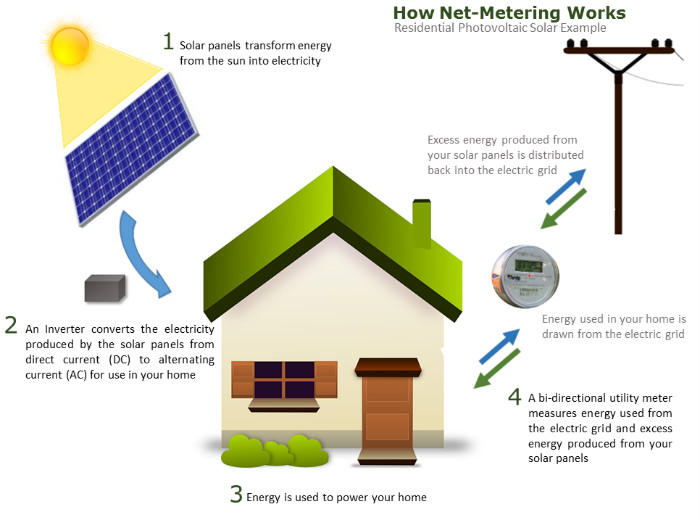Everything You Need To Know About Net Metering
Net metering is a billing mechanism that allows homeowners with solar panels to receive credit for excess energy they generate and feed back into the grid.

Introduction to Net Metering
Net metering is a billing system that allows households and businesses with solar panels or other renewable energy sources to feed excess electricity they generate back into the grid, effectively reducing their electricity bills. The system works by measuring the difference between the electricity a customer consumes from the grid and the electricity they generate and feed back into it. This difference is then recorded as either a credit or a charge on their electricity bill, depending on the direction of the flow.
These incentives have become increasingly popular as more people seek to reduce their reliance on fossil fuels and take advantage of renewable energy sources. It provides an incentive for homeowners and businesses to invest in solar panels and other renewable energy systems, as they can not only reduce their own electricity bills but also contribute to the overall supply of clean energy.
Understanding Net Metering: A Guide for Homeowners
Homeowners make an arrangement in which homeowners who generate their own electricity through solar panels or other renewable sources can sell the excess power they produce back to the utility company. This can help offset the cost of electricity and promote the use of clean energy.
It’s very important to understand how this program works. A great resource can be found at the National Renewable Energy Laboratory (NREL), which provides a comprehensive guide to net metering for homeowners, also check out the website Solar Energy Industries Association (SEIA),

How Net Metering Works: An Overview
When solar panels or wind turbines generate more electricity than the homeowner needs, the excess energy is sent back to the power grid. The energy is then credited to the homeowner’s account at the same retail rate that they would pay for electricity. This allows homeowners to offset the cost of electricity they use when their renewable energy system is not producing enough power, such as at night or on cloudy days.
Laws and regulations vary by state and country, but the basic concept remains the same and promotes the adoption of renewable energy systems by making it financially beneficial for homeowners to generate their own electricity.
The Economics of Net Metering:
The economic impact of these programs is a topic of debate, with proponents arguing that it incentivizes renewable energy adoption and benefits the grid as a whole, while opponents argue that it shifts costs onto non-solar customers and may not provide a fair market value for the excess power generated.
Supporters of net metering argue that it promotes the growth of distributed energy resources, reducing reliance on centralized power plants and improving grid resiliency. Additionally, the policy creates financial incentives for consumers to invest in renewable energy, which can reduce overall energy costs and promote economic development.
The economics can be complex and depend on a variety of factors, including the cost of electricity in a given area, the rate at which excess power is credited, and the relative proportion of solar customers to non-solar customers.





